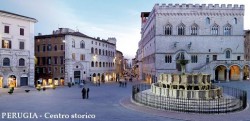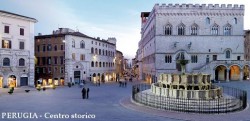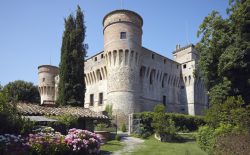 1. Big backpack or duffel bag
1. Big backpack or duffel bag
A backpack or duffel bag means much easier traveling. It’s hard to drag skimpy little suitcase wheels over cobblestone, and they can easily get destroyed as a result, so bring a backpack! You’d be surprised how much you can fit in one.
2. Beach towel
Maybe you decide to go to Lake Trasimeno one day, or maybe you’re lounging by sea in Barcelona. Either way, you’re going to want something to lounge on.
3. Ibuprofen
Whether you got burned at the beach or have a headache, you may need to use ibuprofen at some point in your time here. It’s super expensive here, and they don’t have jumbo-size bottles like they do in the US.
4. Euros
It’s always a good idea to have some euros on you when you arrive in Italy, as Italy is more cash-based than credit-card-based. Many US banks can exchange dollars for euros, and they can do so at much better rates than what you’ll find in the Rome airport.
5. Portable charger
Lots of walking equals lots of time not near an outlet. You can easily keep a small charger in a pocket or purse.
6. Attire appropriate for churches
I made the mistake of wearing shorts to the St. Francis Basilica in Assisi, and the monks then made me use a makeshift cover before I could enter. You’ll definitely want to look inside the beautiful churches while you’re here, but know that the dress codes are strictly enforced. To avoid my fate, throw in a long-sleeved shirt or cardigan and a pair of jeans.
7. Bonus tip for girls: pack wedges, not stiletto heels. Perugia is hilly, and the cobblestones will do damage to stilettos. Many sites will tell you not to pack heels at all, but wedges or thick heels are a good compromise, as they won’t hurt your feet as much and or get destroyed.







 At a presentation in Perugia earlier this week, Mayor Romizi announced that 2018 would be the year that fast trains (
At a presentation in Perugia earlier this week, Mayor Romizi announced that 2018 would be the year that fast trains (

